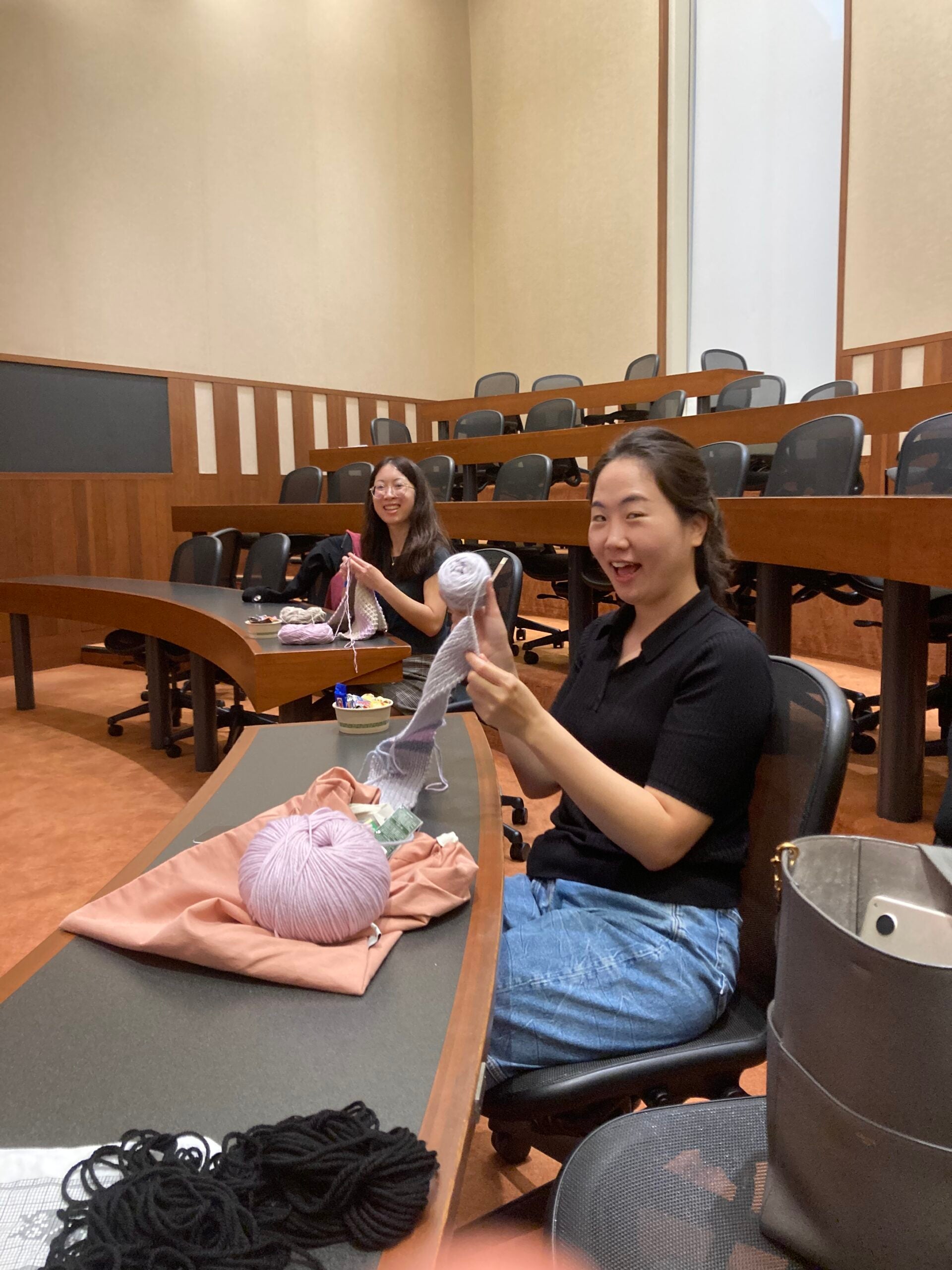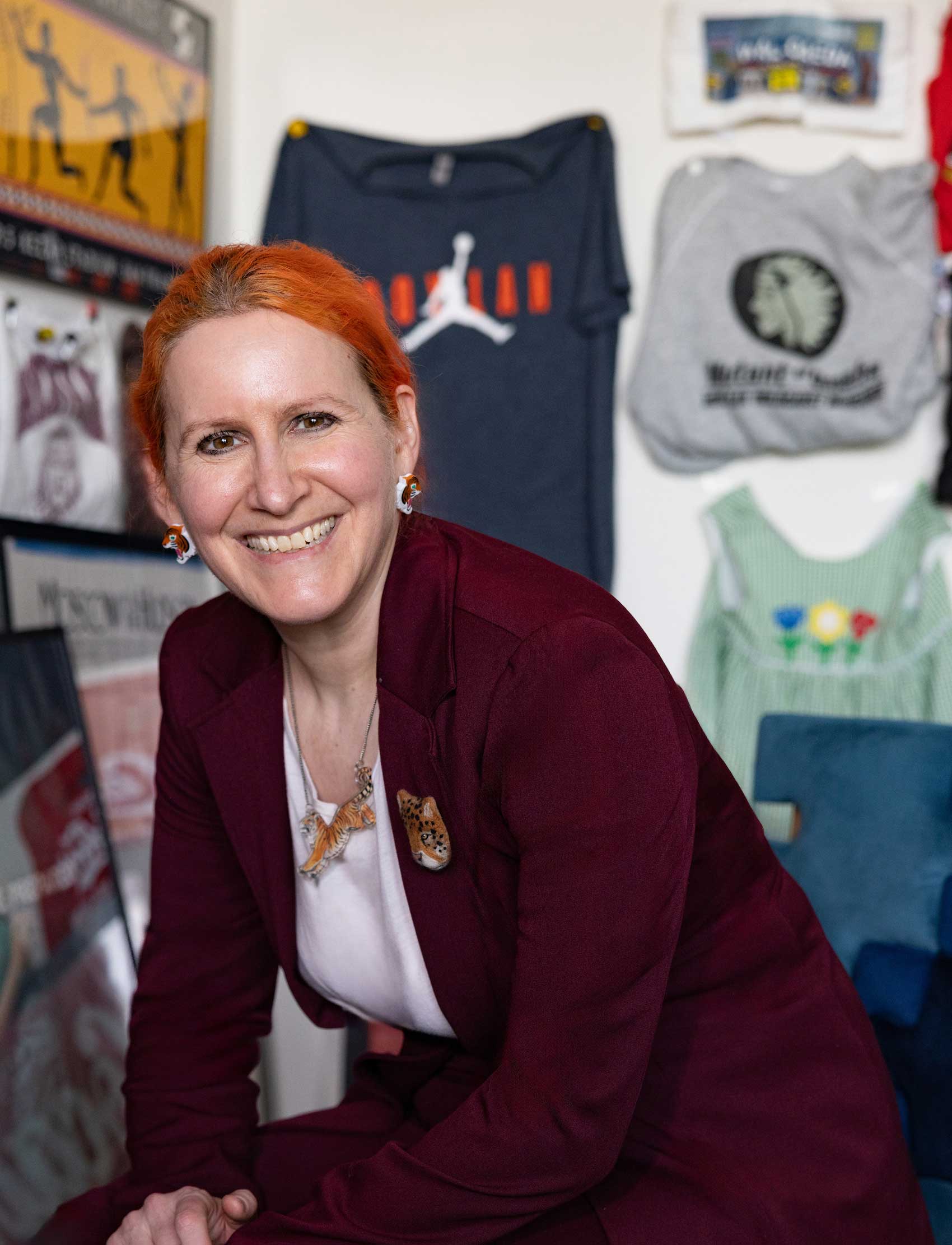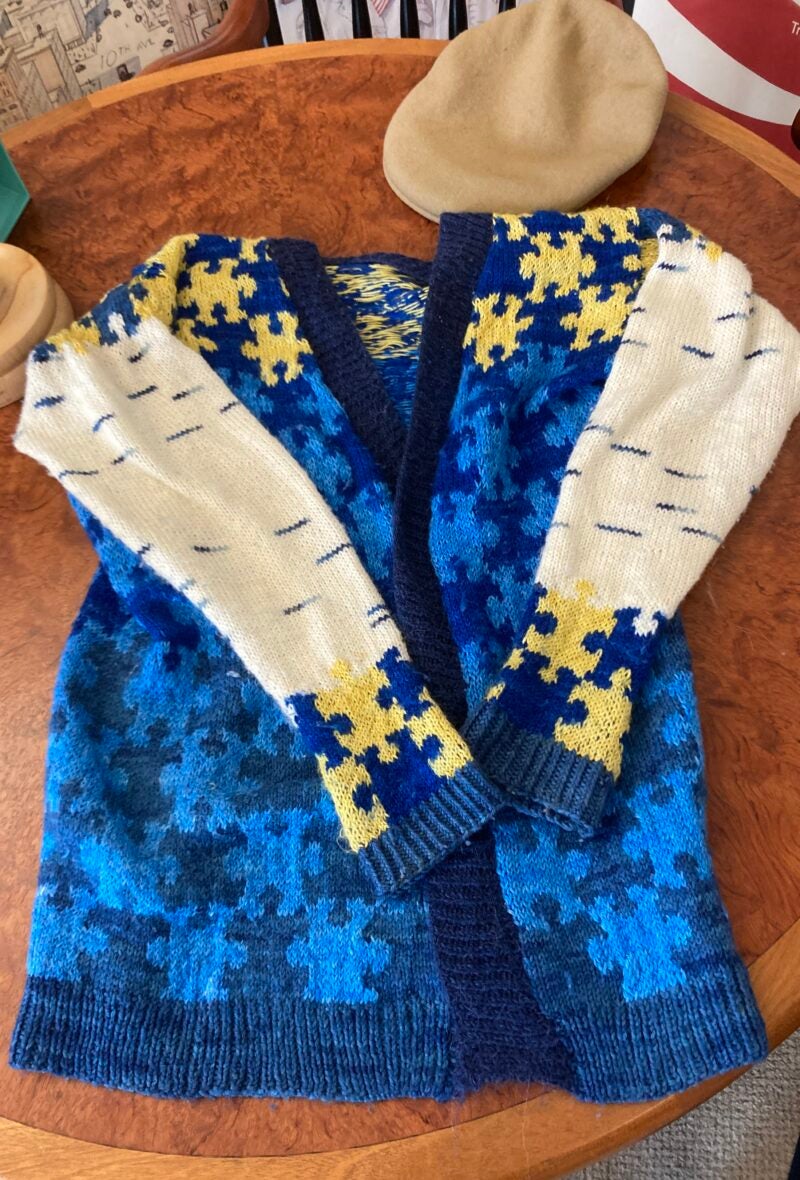For most Harvard Law School students, a request to “put on your thinking cap” is a figurative exercise. But for some of Professor Rebecca Tushnet’s pupils, the phrase evokes something rather more literal.
That’s because Tushnet, the Frank Stanton Professor of the First Amendment at Harvard Law School, is both an inveterate knitter and a generous one – known for handing out hand-crafted hats to lucky law students.
Recently, Tushnet also revived a weekly fiber arts event for Harvard Law affiliates, Knits & Writs, where she invites yarn enthusiasts to gather, share tips and tricks, and most importantly, create community.

“People with all experience levels are welcome,” she says.
Tushnet didn’t grow up knitting. Hoping to learn how to make a piece of clothing she’d seen and admired, she began taking classes in 2016 on the advice of a friend. As it turns out, she says, she loved it.
“I got into knitting because I like the orderliness of it, the rhythm, the patterns, the way you can figure out how to make something new and … change things to suit you in particular,” she told Elizabeth Townsend Gard of Tulane University Law School on the Just Wanna Quilt podcast.
Over the next few years, Tushnet honed her craft with YouTube lessons – and plenty of practice. To Tushnet, knitting is both active and meditative. And although it might sound paradoxical, she finds that some types of knitting improve her ability to concentrate on other things.
“It can give you something to do with your hands during meetings, help you focus, avoid distractions,” she explains.
Today, Tushnet enjoys creating wearable art, from the hats she gives her students, to skirts and sweaters with intricate designs that she creates for herself or other fortunate recipients. Her favorite projects are those with sentimental value – a blanket for her son, a sweater for her daughter – reminders of the emotional power of art, she says.
Tushnet often knits from memory, forgoing patterns when working on items she has made many times, such as socks or caps. For a more complicated project, she will consult formal instructions, but like a chef with a basic recipe, Tushnet feels free to experiment and make the design her own.

This organic process happens to fit neatly with Tushnet’s professional interests. An authority on copyright and trademark issues – among a host of other areas of expertise – she has long thought about how artists take existing creative works and transform them, remixing and building on what came before to make something new and unique.
She says that her hobby has only reinforced her longstanding view that it is extraordinarily difficult – maybe impossible – for any piece of art to be completely “original.”
“I’ve always seen things as iterations of things that have come before,” she told Gard. “Even if I make a new pattern, it’s based on something I learned from somewhere else.”
In fact, Tushnet points out, the idea of transformation is a key rationale for fair use, the legal doctrine that allows for the use of copyrighted materials by artists who transform an existing piece into something new.
Even before she learned to knit, Tushnet was a strong advocate for these kinds of artists and their work. In 2007, Tushnet helped found the Organization for Transformative Works, a nonprofit that supports fanworks – creative materials based off existing copyrighted materials, such as a short story set in the Star Wars universe, or a painting of a Marvel character in a new setting. A 1997 paper by Tushnet, “Legal Fictions: Copyright, Fan Fiction, and a New Common Law,” is considered a foundational defense of the art form.
“The impulse to ask ‘What happened next?’ is probably as old as the first well-told story,” she writes in “Legal Fictions.” “Widespread practices of secondary creativity include making up stories about Barbie and Ken and telling one’s own Star Trek stories because one episode a week is not enough. … Should these acts of self-expression be illegal, or is secondary creativity the kind of human endeavor that the law should respect?”
Fanworks, as a genre, is known for creating community, forging relationships among those with shared interests and hobbies. Perhaps it is no surprise, then, that Tushnet is also passionate about knitting, a craft known for weaving people together and sometimes even serving as a network to agitate for social change.
Tushnet says she launched Knits & Writs, which meets at Hauser Hall every Thursday, for more lighthearted reasons – to relax, make connections, and have fun. But, she adds, if these tight-knit relationships inspire people to work together for something larger, that’s all the better. “After all, community is always at the root of activism,” she says.
Upcoming Knits and Writs events
Want to stay up to date with Harvard Law Today? Sign up for our weekly newsletter.
